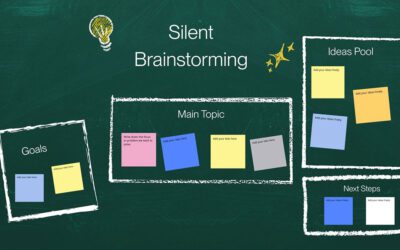In the hustle and bustle of the corporate world, introverts often find themselves navigating environments that prioritize extroverted qualities—speaking up in meetings, constant collaboration, and socializing after work hours. While these activities might energize extroverted colleagues, they can be draining for introverted employees who thrive in quieter, more reflective spaces. This is where corporate silent retreats come in as a game-changer, offering a sanctuary that benefit introverted employees and caters to the unique needs of introverts while also benefiting the organization as a whole.
Understanding the Introverted Mind
Introverts are often misunderstood as being shy or antisocial, but these labels miss the mark. Introversion is more about how individuals recharge their energy. While extroverts draw energy from external stimulation and social interaction, introverts replenish their reserves through solitude and introspection. In a typical corporate setting, the relentless demands of meetings, networking events, and open office layouts can leave introverted employees feeling mentally and emotionally depleted.
Silent retreats provide an opportunity for introverts to recharge without the usual pressures of constant interaction. These retreats create a space where employees can focus inward, fostering a sense of calm and clarity that’s often elusive in the modern workplace.
The Core Benefits of Silent Retreats for Introverted Employees
- Recharge and Rejuvenate
Silent retreats give introverted employees the chance to step away from the constant noise of the workplace. In a serene environment, free from the demands of conversation and external stimulation, introverts can recharge their mental batteries. This rejuvenation not only benefits the individual but also enhances their productivity and creativity when they return to work.
- Enhanced Focus and Clarity
Silence has a profound impact on cognitive processes. By reducing external distractions, silent retreats allow employees to dive deeper into their thoughts, fostering enhanced focus and mental clarity. For introverts, who often excel in reflective and analytical thinking, this environment can lead to breakthrough ideas and solutions that might not surface in a noisy, fast-paced workplace.
- Stress Reduction
Chronic stress is a significant issue in today’s corporate world, and introverts are particularly susceptible when they’re forced into overstimulating environments. Silent retreats offer a break from the stressors of daily work life, incorporating practices like meditation, mindfulness, and nature walks that are scientifically proven to lower cortisol levels and promote relaxation.
- Personal and Professional Growth
Corporate silent retreats often include guided activities that encourage self-reflection and goal-setting. For introverts, who are naturally introspective, these activities align well with their innate tendencies. This introspection can lead to a better understanding of personal strengths, weaknesses, and aspirations, which can translate into greater confidence and effectiveness in their roles.
- Improved Emotional Well-Being
Silence creates space for emotional processing. Introverts often internalize their emotions, and a silent retreat provides the time and environment to work through feelings without external pressures. This emotional reset can result in a more positive outlook and greater resilience in the workplace.
The Organizational Benefits of Supporting Introverted Employees
Investing in silent retreats isn’t just about catering to individual preferences; it’s a strategic move for organizations. Here’s why:
- Increased Productivity
Recharged employees are productive employees. When introverted staff return from a silent retreat, they’re likely to bring renewed energy, focus, and a readiness to tackle challenges. This productivity boost can have a ripple effect on team performance and organizational outcomes.
- Enhanced Creativity and Problem-Solving
Introverts often excel in creative and analytical tasks. By providing an environment where they can think deeply and without interruption, silent retreats can spark innovative ideas and solutions. These contributions are invaluable in today’s competitive business landscape.
- Strengthened Team Dynamics
While silent retreats may seem like a solo endeavor, they can also improve team dynamics. When introverts return to work feeling more centered and less stressed, they’re better equipped to collaborate effectively. Additionally, understanding and supporting introverts’ needs fosters a culture of inclusivity and respect, which strengthens overall team cohesion.
- Talent Retention
Creating a workplace that values and supports introverts can enhance job satisfaction and loyalty. Employees who feel understood and accommodated are less likely to experience burnout and more likely to remain with the company long-term.
How to Encourage Introverted Employees to Share Their Ideas
Planning a corporate silent retreat offers a unique opportunity to foster an environment where introverted employees feel comfortable expressing their thoughts. One effective approach is incorporating silent brainstorming sessions, designed to encourage introverts to contribute their ideas in a supportive and non-intimidating setting.
What Is Silent Brainstorming?
Silent brainstorming is a collaborative technique that allows participants to generate and share ideas without the pressure of immediate verbal communication. It is particularly effective during silent retreats, which companies often use to reset or address significant organizational challenges. By setting clear intentions at the start of the retreat, employees are given a framework to focus their thoughts and develop solutions to specific problems.
Here is how silent brainstorming can be implemented:
- Defining the Problem: At the beginning of the retreat, identify the key issue or challenge that needs to be addressed. Clearly articulate this problem to provide a sense of direction.
- Silent Idea Generation: During the silent portion of the retreat, participants use tools like sticky notes to write down their ideas and solutions. These notes can then be anonymously posted on a designated wall or board within the retreat center. This process ensures that introverted employees feel comfortable sharing their thoughts without the pressure of speaking up in a group setting.
- Collaborative Refinement: Employees can review the ideas posted by their colleagues and add their own thoughts or build upon existing suggestions. This creates a dynamic, collaborative environment where everyone’s input is valued.
- Group Discussion and Decision-Making: At the conclusion of the silent portion, a final group meeting is held to review all the ideas. This provides an opportunity for discussion, refinement, and alignment on the next steps. By this stage, introverted employees are likely to feel more confident and may actively participate in the conversation.
By incorporating silent brainstorming into your corporate silent retreat, you can empower introverted employees to contribute meaningfully, fostering a culture of inclusion, creativity, and collaboration.
Addressing Common Concerns about Corporate Silent Retreats
“Won’t this alienate extroverts?”
While silent retreats are particularly beneficial for introverts, extroverts can also gain value from these experiences. The opportunity to slow down, disconnect, and reflect is universally beneficial. To cater to extroverted employees, consider offering a mix of retreat options that balance silence with interactive elements like team-building activities.
“Isn’t it costly?”
The upfront cost of a silent retreat is an investment in employee well-being and organizational success. Reduced burnout, improved productivity, and enhanced creativity are just some of the long-term returns. Moreover, silent retreats can often be more cost-effective than other corporate outings that involve elaborate activities or entertainment.
Final Thoughts
In a world that often celebrates extroverted traits, it’s essential to create spaces where introverted employees can thrive. Corporate silent retreats offer a unique and effective way to support these individuals, helping them recharge, gain clarity, and bring their best selves to work. By recognizing and addressing the diverse needs of their workforce, organizations can build a culture of inclusivity, respect, and innovation.
For introverts, a silent retreat is more than just a break; it’s a chance to align with their natural rhythms and unlock their full potential. For companies, it’s an opportunity to foster a more balanced, harmonious, and productive workplace. It’s a win-win that deserves a place in every organization’s employee wellness strategy.
If you would like to learn more about what type of activities we provide please visit the retreat page or contact heather@silentfocus.co.





